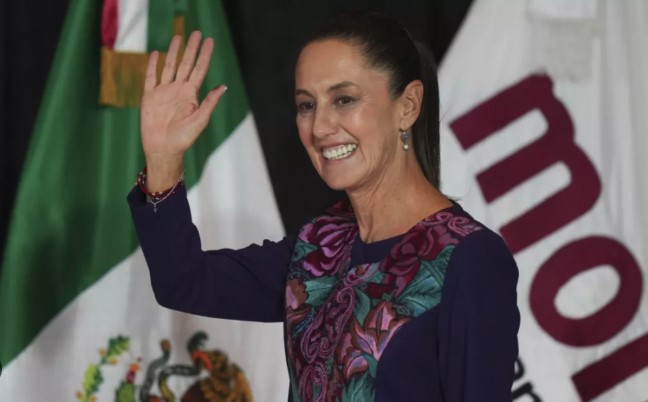On Monday night, President Claudia Sheinbaum made history by leading Mexico’s Independence Day celebrations. For the first time in over a century, a woman assumed the role of head of the executive to conduct one of the country’s most important national festivities.
Sheinbaum leads Independence Day celebration before thousands
Tens of thousands of people gathered in the Plaza de la Constitución, the main square in Mexico City. They came to witness the historic event. From one of the balconies of the National Palace, Sheinbaum delivered the traditional “Cry of Independence.” She honored Mexico’s heroes and heroines, as well as Indigenous women and migrants.
Firstly, Sheinbaum’s speech highlighted key values for the nation. She declared: “Long live the dignity of the people of Mexico! Long live freedom! Long live equality! Long live democracy! Long live justice! Long live free, independent, and sovereign Mexico!” The crowd responded with applause and cheers. In other words, they echoed her exclamations in celebration and unity.
Sheinbaum rejects U.S. airstrike talk on cartels; vows to defend Mexico sovereignty
After the speech, Sheinbaum rang the historic bell of the National Palace. This continued a tradition that dates back to 1810. That year, priest Miguel Hidalgo issued the call to arms that began Mexico’s struggle for independence from Spain. Meanwhile, the ringing of the bells of the Metropolitan Cathedral and the singing of the national anthem complemented the ceremony. Consequently, these actions completed the formal commemoration.
A historic shift in a patriarchal tradition led by Sheinbaum
The annual “Cry of Independence” ceremony marks the moment when Hidalgo rallied the people to fight for Mexico’s independence, which they achieved in 1821. Although leaders have held the celebration since the early 19th century, they introduced the ringing of the bell and the recitation of vivas in 1880. For over a century, the event was led exclusively by male political figures.
Alfredo Ávila, a researcher at the Institute of Historical Studies at the National Autonomous University of Mexico, told The Associated Press that having a woman deliver the cry represents a “substantial change.” He noted that the tradition has historically been “very patriarchal,” making Sheinbaum’s leadership a milestone in the country’s history.
Trump pushed for U.S. military strikes while CIA quietly armed Mexico’s anti-cartel forces
While Sheinbaum became Mexico’s first female president on October 1, the first woman to lead an Independence Day celebration at the state level was Griselda Álvarez, governor of Colima. In 1980, Álvarez, who was the first woman elected as a governor in Mexico, gave the traditional cry of independence in her state, paving the way for women in Mexican politics.
Nationwide celebrations amid security challenges
Across Mexico, people celebrate Independence Day with fireworks, musical performances, military parades, and family gatherings. Families nationwide enjoy traditional dishes such as pozole, a soup made from maize, and chiles en nogada, poblano peppers stuffed with a mix of beef, pork, fruits, and spices, topped with a creamy walnut sauce.
Despite the festive atmosphere, some regions faced safety challenges. Authorities in parts of Michoacán and Sinaloa suspended mass public celebrations to prevent potential violence. Sinaloa’s governor, Rubén Rocha, announced that the three branches of the state government and the armed forces would participate in a civic ceremony instead.
US Sparks Outrage by Rejecting Mexico’s Water Request Over 1944 Treaty Violation
Over the past year, rival factions of the Sinaloa cartel caused intense violence, resulting in hundreds of deaths. In these regions, local officials scaled down or canceled celebrations, reflecting ongoing security challenges in parts of the country.
Despite these difficulties, the historic ceremony in Mexico City went ahead as planned, marking a significant moment in Mexican history. President Sheinbaum’s leadership in the celebration reflects both the nation’s traditions and a step forward in gender representation at the highest level of government.

